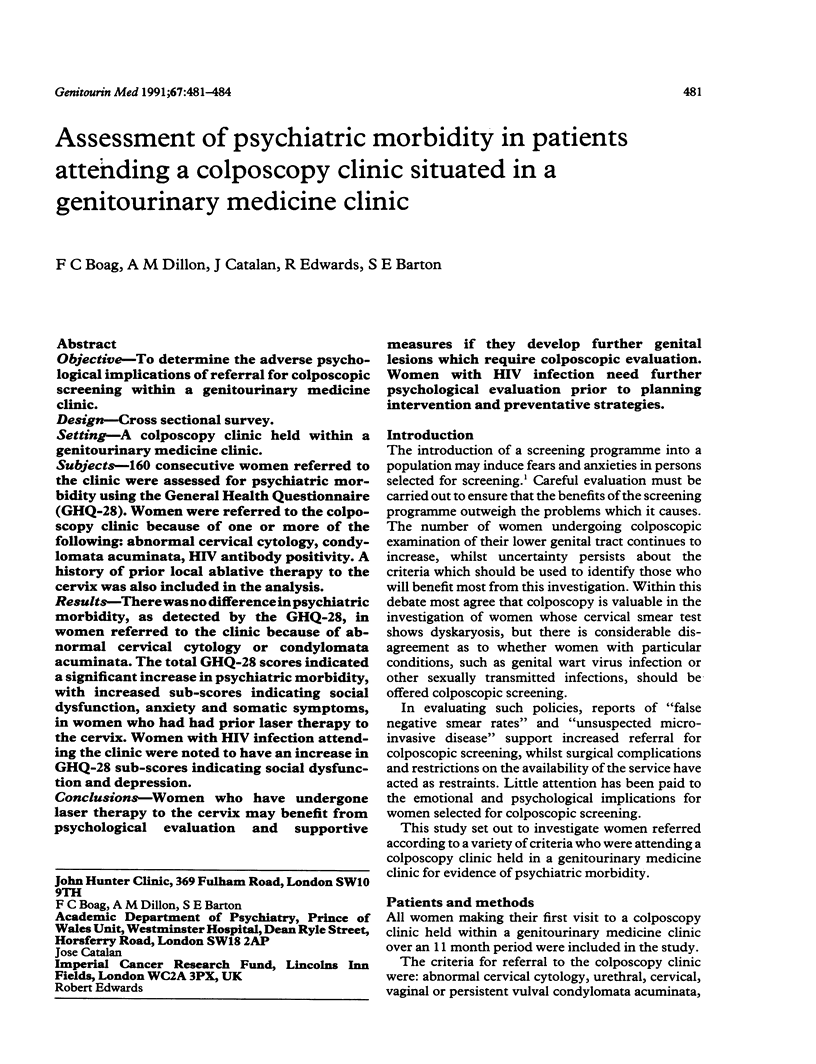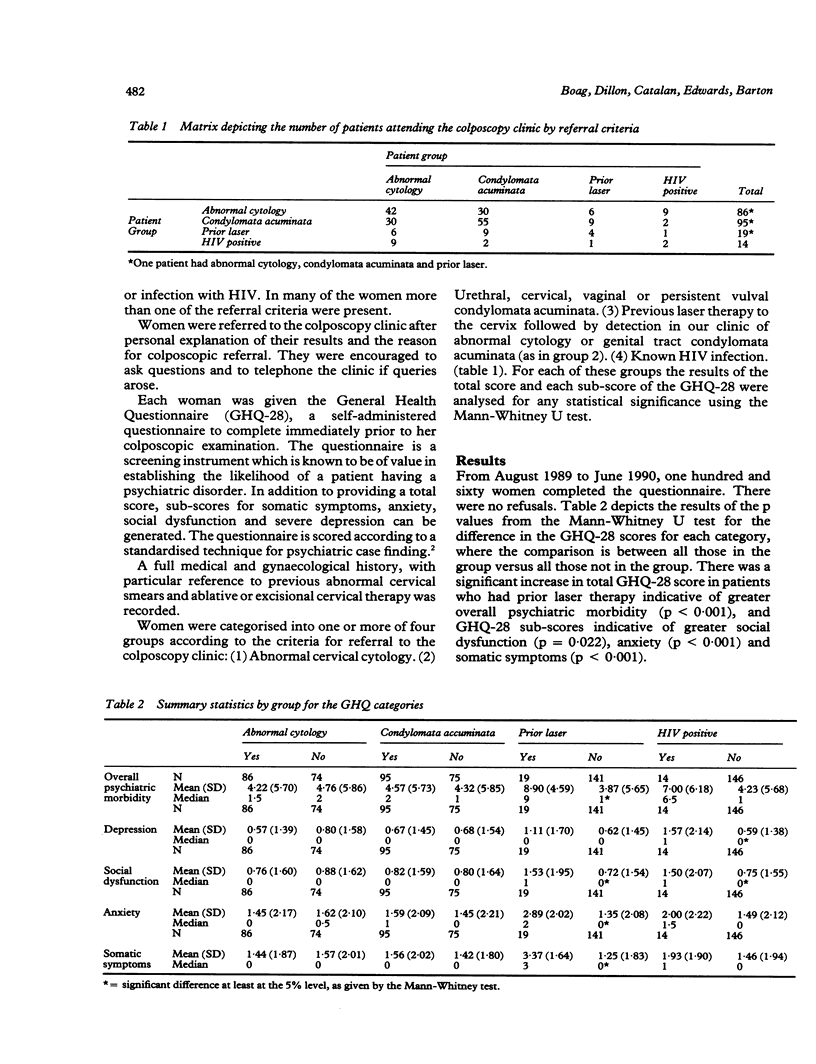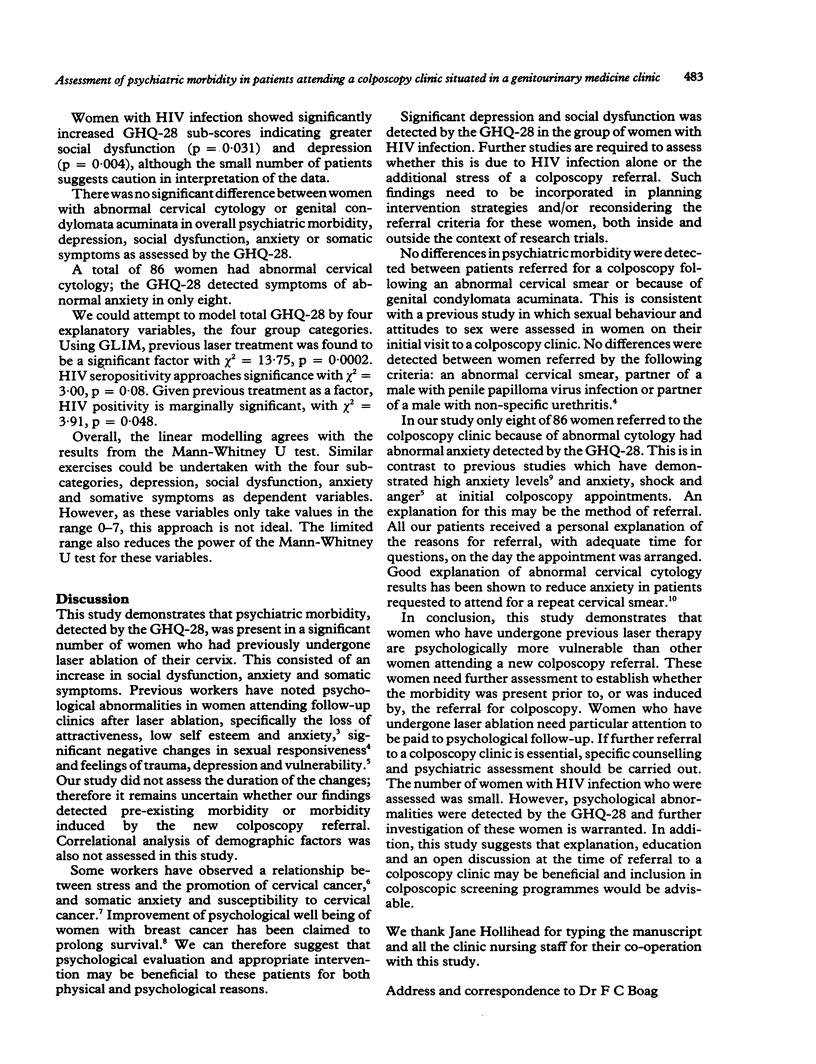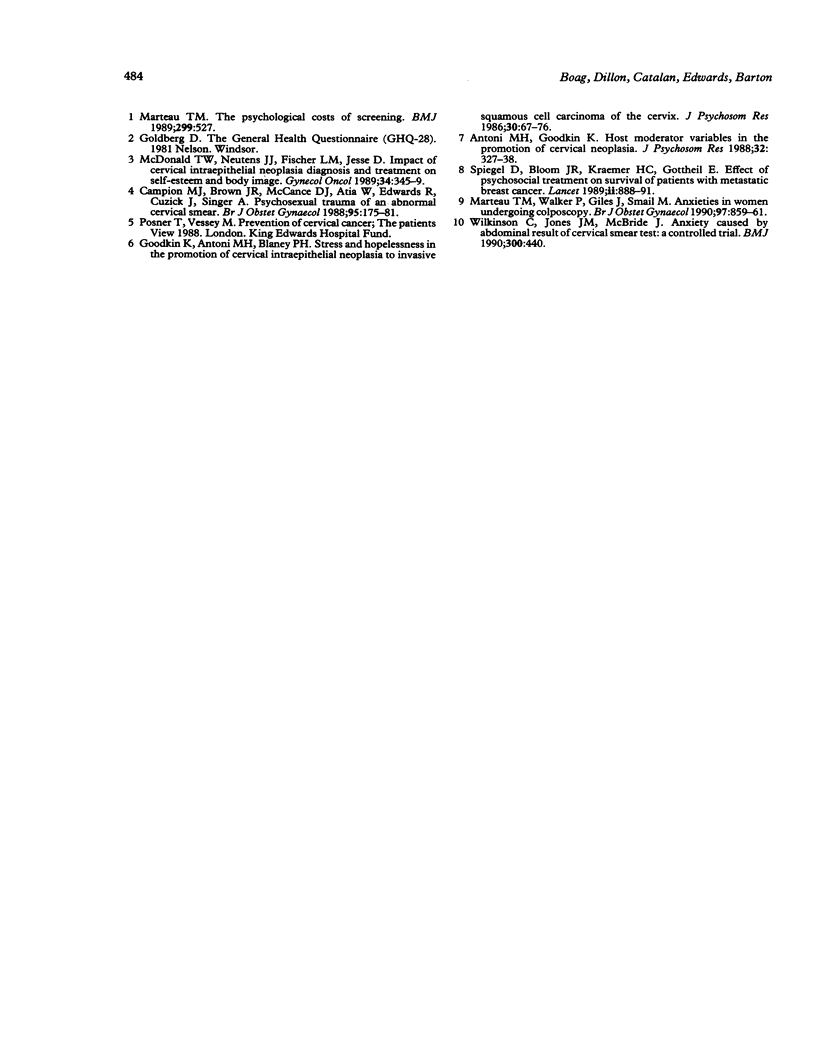Abstract
OBJECTIVE--To determine the adverse psychological implications of referral for colposcopic screening within a genitourinary medicine clinic. DESIGN--Cross sectional survey. SETTING--A colposcopy clinic held within a genitourinary medicine clinic. SUBJECTS--160 consecutive women referred to the clinic were assessed for psychiatric morbidity using the General Health Questionnaire (GHQ-28). Women were referred to the colposcopy clinic because of one or more of the following: abnormal cervical cytology, condylomata acuminata, HIV antibody positivity. A history of prior local ablative therapy to the cervix was also included in the analysis. RESULTS--There was no difference in psychiatric morbidity, as detected by the GHQ-28, in women referred to the clinic because of abnormal cervical cytology or condylomata acuminata. The total GHQ-28 scores indicated a significant increase in psychiatric morbidity, with increased sub-scores indicating social dysfunction, anxiety and somatic symptoms, in women who had had prior laser therapy to the cervix. Women with HIV infection attending the clinic were noted to have an increase in GHQ-28 sub-scores indicating social dysfunction and depression. CONCLUSIONS--Women who have undergone laser therapy to the cervix may benefit from psychological evaluation and supportive measures if they develop further genital lesions which require colposcopic evaluation. Women with HIV infection need further psychological evaluation prior to planning intervention and preventative strategies.
Full text
PDF



Selected References
These references are in PubMed. This may not be the complete list of references from this article.
- Antoni M. H., Goodkin K. Host moderator variables in the promotion of cervical neoplasia--I. Personality facets. J Psychosom Res. 1988;32(3):327–338. doi: 10.1016/0022-3999(88)90075-x. [DOI] [PubMed] [Google Scholar]
- Campion M. J., Brown J. R., McCance D. J., Atia W., Edwards R., Cuzick J., Singer A. Psychosexual trauma of an abnormal cervical smear. Br J Obstet Gynaecol. 1988 Feb;95(2):175–181. doi: 10.1111/j.1471-0528.1988.tb06848.x. [DOI] [PubMed] [Google Scholar]
- Goodkin K., Antoni M. H., Blaney P. H. Stress and hopelessness in the promotion of cervical intraepithelial neoplasia to invasive squamous cell carcinoma of the cervix. J Psychosom Res. 1986;30(1):67–76. doi: 10.1016/0022-3999(86)90068-1. [DOI] [PubMed] [Google Scholar]
- Marteau T. M. Psychological costs of screening. BMJ. 1989 Aug 26;299(6698):527–527. doi: 10.1136/bmj.299.6698.527. [DOI] [PMC free article] [PubMed] [Google Scholar]
- Marteau T. M., Walker P., Giles J., Smail M. Anxieties in women undergoing colposcopy. Br J Obstet Gynaecol. 1990 Sep;97(9):859–861. doi: 10.1111/j.1471-0528.1990.tb02586.x. [DOI] [PubMed] [Google Scholar]
- McDonald T. W., Neutens J. J., Fischer L. M., Jessee D. Impact of cervical intraepithelial neoplasia diagnosis and treatment on self-esteem and body image. Gynecol Oncol. 1989 Sep;34(3):345–349. doi: 10.1016/0090-8258(89)90170-4. [DOI] [PubMed] [Google Scholar]
- Spiegel D., Bloom J. R., Kraemer H. C., Gottheil E. Effect of psychosocial treatment on survival of patients with metastatic breast cancer. Lancet. 1989 Oct 14;2(8668):888–891. doi: 10.1016/s0140-6736(89)91551-1. [DOI] [PubMed] [Google Scholar]
- Wilkinson C., Jones J. M., McBride J. Anxiety caused by abnormal result of cervical smear test: a controlled trial. BMJ. 1990 Feb 17;300(6722):440–440. doi: 10.1136/bmj.300.6722.440. [DOI] [PMC free article] [PubMed] [Google Scholar]


